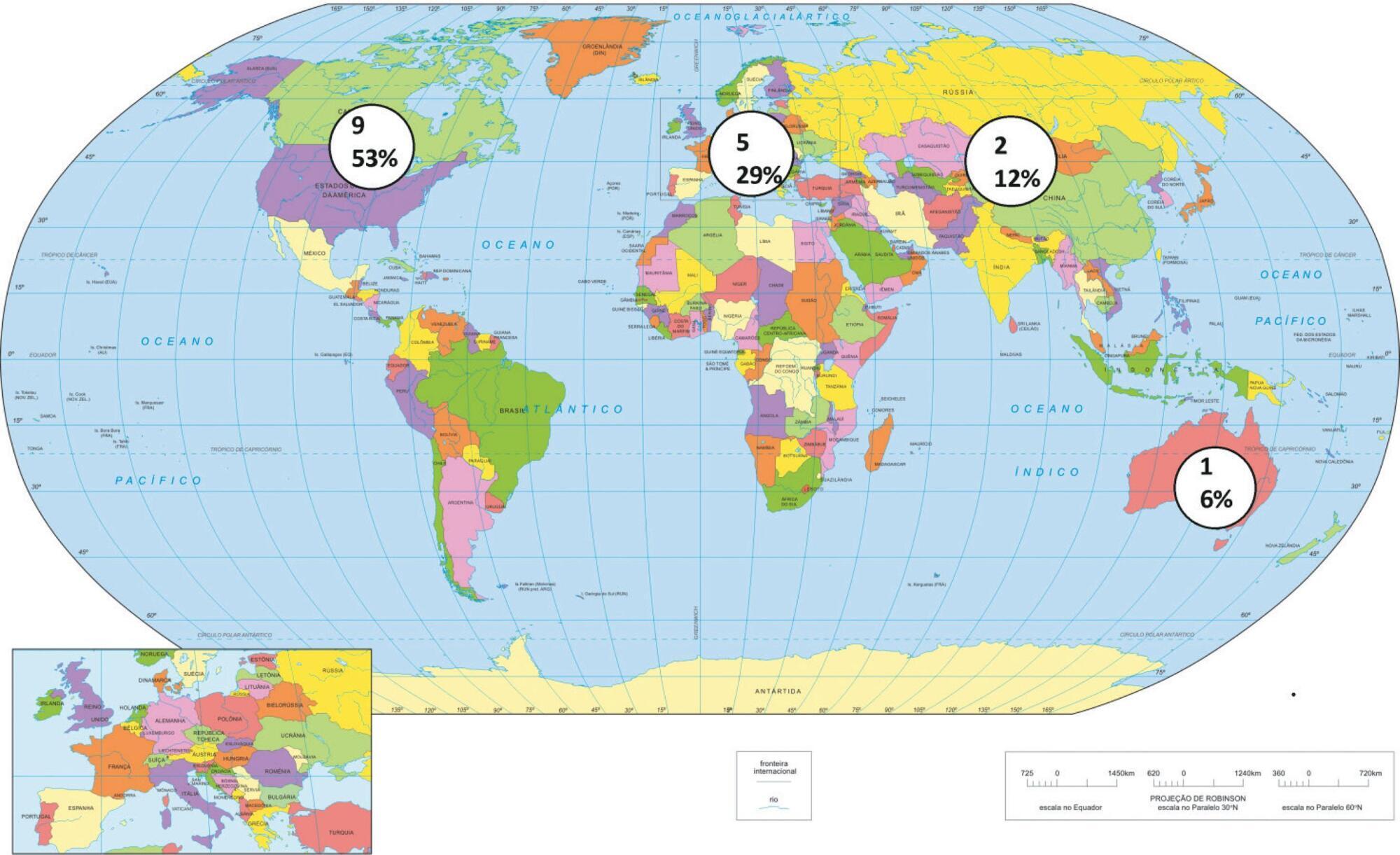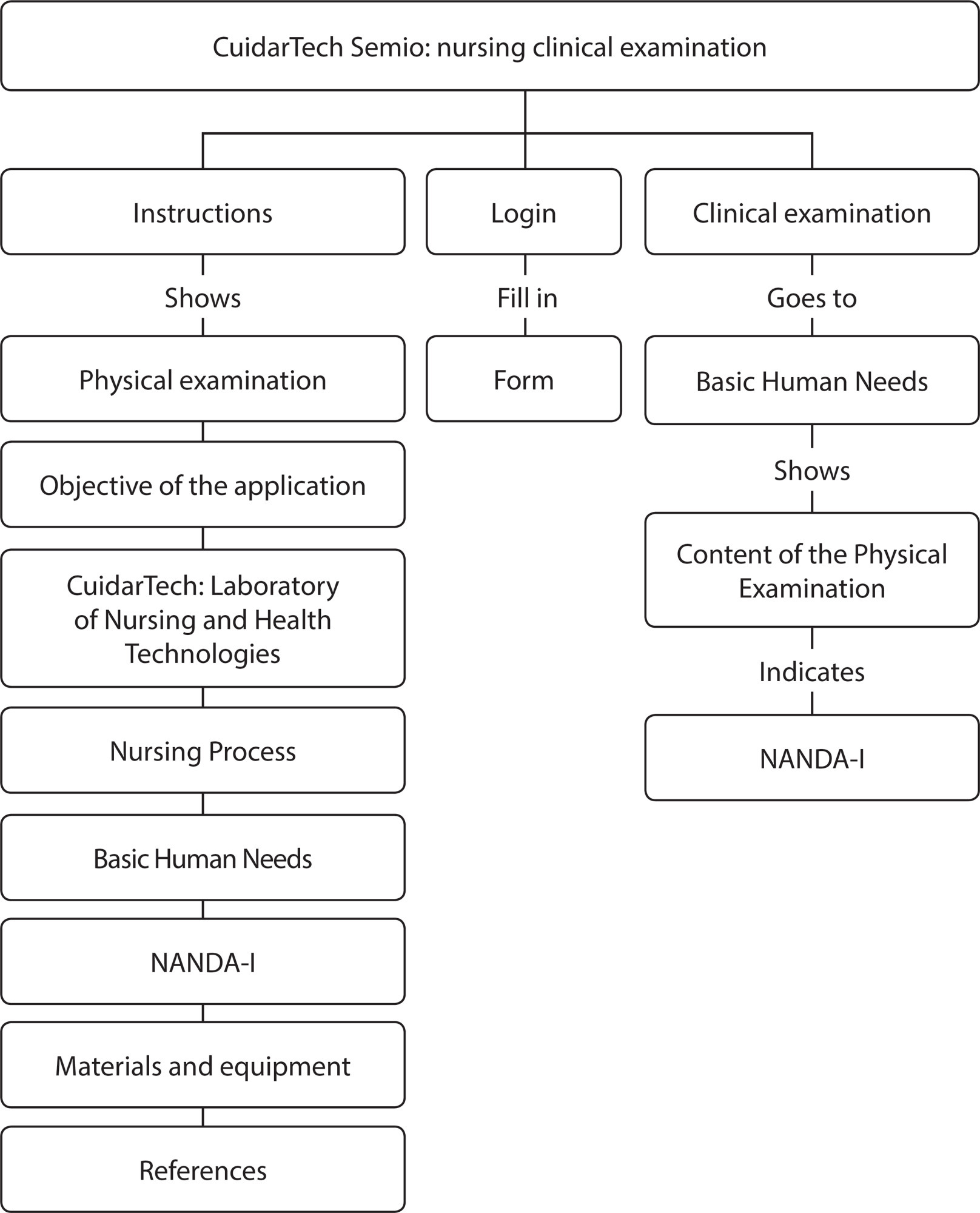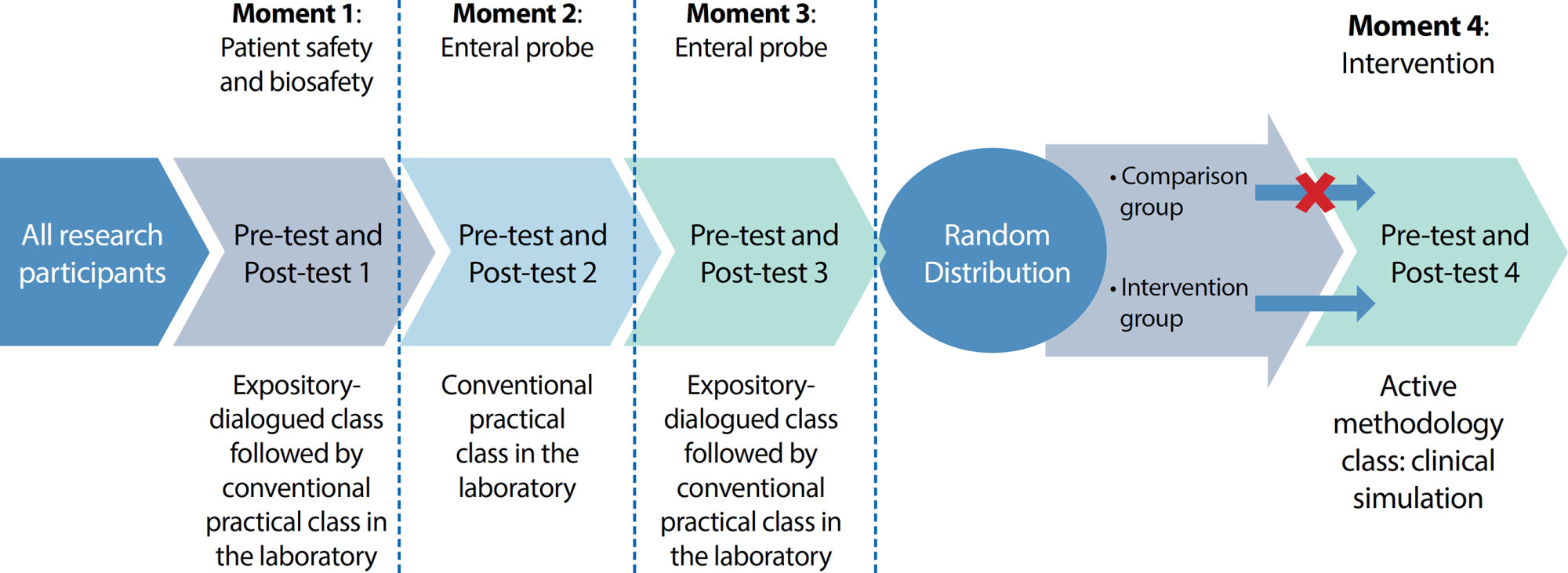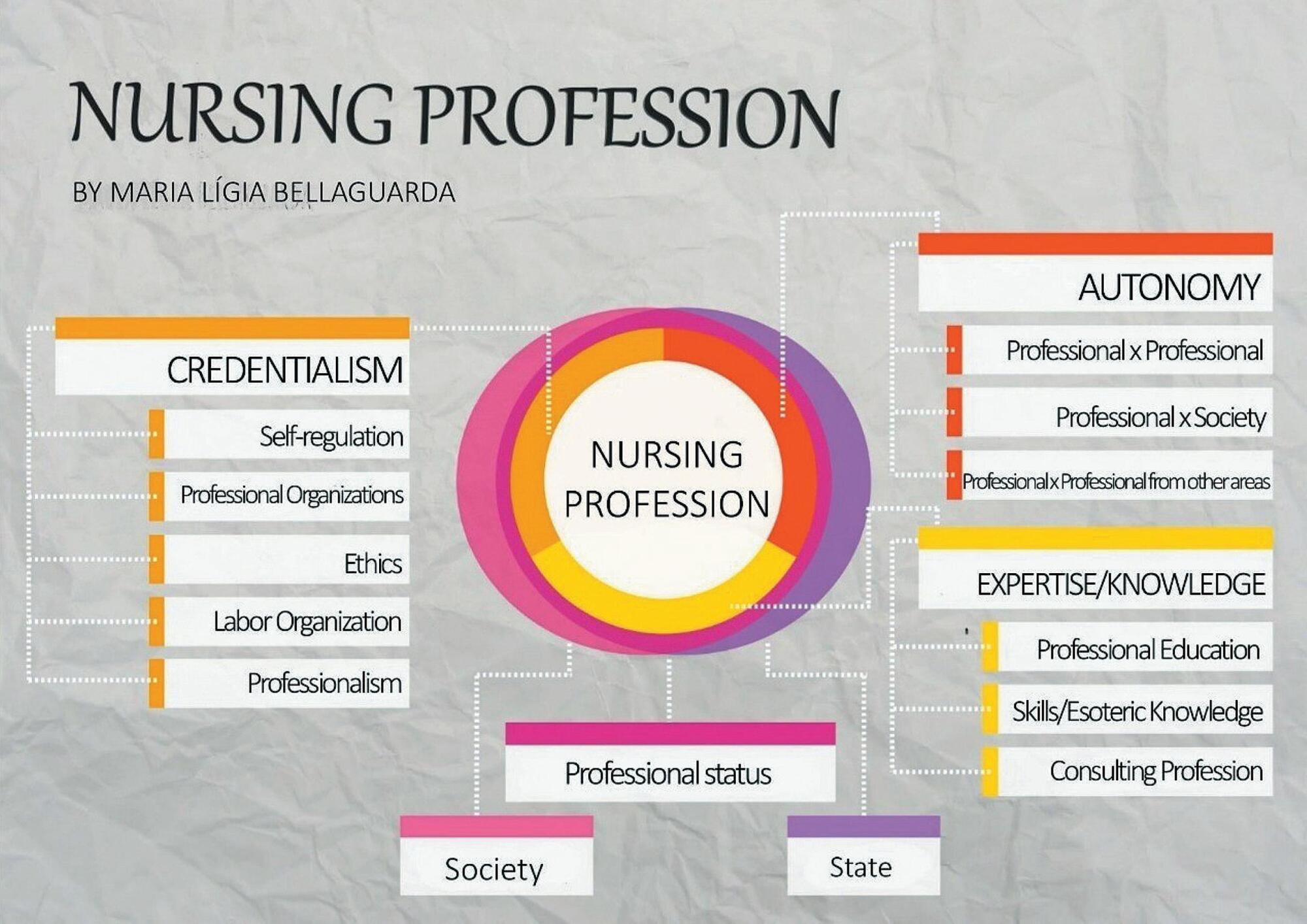-
ORIGINAL ARTICLE12-16-2024
Respectful care for postpartum women with sickle cell disease: a netnographic study
Revista Brasileira de Enfermagem. 2024;77(6):e20230545
Abstract
ORIGINAL ARTICLERespectful care for postpartum women with sickle cell disease: a netnographic study
Revista Brasileira de Enfermagem. 2024;77(6):e20230545
DOI 10.1590/0034-7167-2023-0545
Views1See moreABSTRACT
Objectives:
to analyze principles of respectful maternity care in narratives of postpartum women with sickle cell disease, relating them to Sustainable Development Goals.
Methods:
netnographic study, with two videos published in 2020. Deductive iconographic and thematic analysis by Respectful Maternity Care Charter, organized in MAXQDA.
Results:
principles identified were the right to: freedom from harm and ill-treatment; information, informed consent, refusal of medical procedures, and respect for their choices and preferences including companion; be considered a person from birth, with dignified and respectful treatment; health at the highest possible level; newborns being with their parents or guardians. The Sustainable Development Goals for women by 2030 were not positively contemplated in postpartum women’s experience.
Final Considerations:
it is appropriate that health workers qualify themselves to provide respectful maternity care, with qualified listening, understanding, and resolution of unique demands of postpartum women with sickle cell disease, seeking equality in care for women.

-
12-16-2024
GerenciaDOR™: development of digital technology by nurses for the assessment of patients with chronic pain
Revista Brasileira de Enfermagem. 2024;77(6):e20240050
Abstract
GerenciaDOR™: development of digital technology by nurses for the assessment of patients with chronic pain
Revista Brasileira de Enfermagem. 2024;77(6):e20240050
DOI 10.1590/0034-7167-2024-0050
Views0See moreABSTRACT
Objectives:
to develop a digital technological solution (prototype) for assessing patients with chronic pain.
Methods:
this is a methodological and technological development study based on the Human-Centered Design framework and the principles of Patient-Centered Care. The prototype guides patients through a body diagram and directs them to an evaluation using specific instruments that address the multidimensional aspects of chronic pain.
Results:
the GerenciaDOR* project enables navigation through the Web App screens, providing access to pain assessment features up to the presentation of results.
Final Considerations:
the study describes a systematic approach to pain assessment and expands nurses’ knowledge in pain management. Additionally, it can promote the development of other digital technologies for chronic pain assessment and contribute to a multidisciplinary, patient centered treatment.

-
ORIGINAL ARTICLE12-16-2024
Psychometric analysis of ProQOL-BR in nursing: building hospital safety and protection
Revista Brasileira de Enfermagem. 2024;77(6):e20240085
Abstract
ORIGINAL ARTICLEPsychometric analysis of ProQOL-BR in nursing: building hospital safety and protection
Revista Brasileira de Enfermagem. 2024;77(6):e20240085
DOI 10.1590/0034-7167-2024-0085
Views0See moreABSTRACT
Objectives:
to analyze the psychometric properties of the ProQOL-BR instrument in hospital nursing professionals.
Methods:
a methodological study to validate the ProQOL-BR. Confirmatory factor analysis, assessment of local and global adjustment quality, Pearson hypothesis testing and Cronbach’s alpha internal consistency analysis were used.
Results:
a total of 490 professionals participated. The model presents adequate quality due to factor weights (λ≥ 0.40), acceptable overall fit quality and adequate chi-square ratio and degrees of freedom (χ2/g.1=2.51) for the parameters of CFI (0.923), GFI (0.902), TLI (0.914) and RMSEA (0.042). In terms of validity, it was shown to be adequate with CC=0.89. The internal consistency obtained by standardized Cronbach’s alpha was 0.761. Criterion validity was shown to be favorable with significant correlations (0.001).
Conclusions:
the instrument was validated regarding content, criteria and reliability. Three questions were removed from the original instrument, ProQOL-BR, leaving the final instrument with 25 questions.

-
REVIEW12-16-2024
Recommendations for guidelines for promoting mental health in the workplace: an umbrella review
Revista Brasileira de Enfermagem. 2024;77(6):e20240086
Abstract
REVIEWRecommendations for guidelines for promoting mental health in the workplace: an umbrella review
Revista Brasileira de Enfermagem. 2024;77(6):e20240086
DOI 10.1590/0034-7167-2024-0086
Views1See moreABSTRACT
Objectives:
to summarize the recommendations of guidelines for promoting mental health in the workplace.
Methods:
an umbrella review, according to Joanna Briggs Institute and Preferred Reporting Items for Systematic reviews and Meta-Analyses methodological assumptions. Data collection was carried out in January 2021 and updated in July 2023 in the American Psychological Association, Cochrane Library, EMBASE, National Library of Medicine, and Scopus databases. Systematic reviews that assessed guidelines with recommendations for mental health care for workers were included. PROSPERO registration CRD42023461845.
Results:
four systematic reviews published between 2015 and 2018 were identified. The abstracts highlighted actions that facilitate and inhibit the recommendations as well as three categories of intervention: primary prevention – worker protection; secondary prevention – promoting workers’ mental health; and tertiary prevention – supporting, monitoring and rehabilitating workers upon returning to work.
Conclusions:
the interventions are based on prevention, promotion and early recognition, support and rehabilitation of mental health problems.

-
ORIGINAL ARTICLE12-16-2024
Analysis of omission of antimicrobial doses in Intensive Care Units
Revista Brasileira de Enfermagem. 2024;77(6):e20240102
Abstract
ORIGINAL ARTICLEAnalysis of omission of antimicrobial doses in Intensive Care Units
Revista Brasileira de Enfermagem. 2024;77(6):e20240102
DOI 10.1590/0034-7167-2024-0102
Views0See moreABSTRACT
Objectives:
to analyze the rate of antimicrobial dose omission in intensive care units.
Methods:
cross-sectional study carried out between March 1 and September 30, 2023, in intensive care units of a University Hospital in Rio de Janeiro.
Results:
the sample consisted of 452 prescriptions and 1467 antimicrobial doses. The dose omission rate was 4.29%. Each antimicrobial prescribed increased the chance of omission by 51%. The strategy of double-checking prescriptions helped prevent 30% of antimicrobial dose omissions (p=0.0001).
Conclusions:
monitoring the omission of antimicrobial doses can guide nursing actions to improve quality and patient safety, contributing to the prevention of medication errors, antimicrobial stewardship and the fight against antimicrobial resistance.
-
ORIGINAL ARTICLE12-16-2024
Health literacy development of Primary Health Care patients: qualitative research
Revista Brasileira de Enfermagem. 2024;77(6):e20240154
Abstract
ORIGINAL ARTICLEHealth literacy development of Primary Health Care patients: qualitative research
Revista Brasileira de Enfermagem. 2024;77(6):e20240154
DOI 10.1590/0034-7167-2024-0154
Views0See moreABSTRACT
Objectives:
to identify the process of health literacy development among primary care patients, relating it to their self-care practices.
Methods:
qualitative, prospective research with 22 patients from two Family Health Strategy units. Data were obtained through individual semi-structured interviews, examined through descriptive statistics and thematic content analysis.
Results:
the results discuss how participants learn about health and how this resonates in their behaviors, culminating in two thematic categories: “Health knowledge construction”; and “Dialogue between health knowledge construction and patient care actions”.
Final Considerations:
health knowledge is developed mainly through interpersonal relationships, mediated by health professionals through bonding and communication. Community educational actions and training of health professionals in communication can promote health literacy and self-care among patients.

-
ORIGINAL ARTICLE12-16-2024
Bladder ultrasound: evidence of content validity of a checklist for training nurses
Revista Brasileira de Enfermagem. 2024;77(6):e20230183
Abstract
ORIGINAL ARTICLEBladder ultrasound: evidence of content validity of a checklist for training nurses
Revista Brasileira de Enfermagem. 2024;77(6):e20230183
DOI 10.1590/0034-7167-2023-0183
Views0See moreABSTRACT
Objectives:
to develop and analyze evidence of content validity of a checklist for training nurses in measuring bladder volume through ultrasound.
Methods:
a methodological study, consisting of three stages: literature review; instrument item preparation; and analysis of evidence of content validity. The Content Validity Index (CVI) and Gwet’s AC2 were used for content validity analyses.
Results:
the checklist consisted of 23 items. The CVIs for clarity, relevance and dimensionality were 0.99, 0.99 and 0.98 respectively, and the CVIs for Gwet’s AC2 with coefficients for clarity, relevance and dimensionality were 0.89, 0.97 and 0.95, respectively, with p<0.001.
Conclusions:
the checklist developed for training nurses in measuring bladder volume through ultrasound achieved adequate evidence of content validity, and can be used to train nurses in clinical practice and future research.

-
12-16-2024
A relação entre gênero, formação educacional e ambiente de aprendizagem com a ansiedade do estudante de enfermagem
Revista Brasileira de Enfermagem. 2024;77(6):e20220615
Abstract
A relação entre gênero, formação educacional e ambiente de aprendizagem com a ansiedade do estudante de enfermagem
Revista Brasileira de Enfermagem. 2024;77(6):e20220615
DOI 10.1590/0034-7167-2022-0615
Views1See moreRESUMEN
Objetivos:
identificar las variables asociadas a la práctica clínica relacionadas con la ansiedad de los estudiantes de enfermería.
Métodos:
se utilizó un diseño descriptivo, cuantitativo, correlacional con las recomendaciones STROBE, EQUATOR. La población fue de 233 estudiantes de enfermería con una muestra de 135 personas. Los datos se recopilaron de marzo a abril de 2022 utilizando instrumentos validados.
Resultados:
la prueba de chi-cuadrado y razón de verosimilitud significativa para género, formación académica y entorno de aprendizaje son superiores a 0.05, por lo que no existe una relación significativa entre las variables y la ansiedad de los estudiantes.
Conclusiones:
los estudiantes necesitan prepararse nuevamente antes de ingresar al campo de la práctica. Investigaciones cualitativas también son necesarias.
-
REVIEW06-11-2021
Mental health interventions implemented in the COVID-19 pandemic: what is the evidence?
Revista Brasileira de Enfermagem. 2021;74:e20200635
Abstract
REVIEWMental health interventions implemented in the COVID-19 pandemic: what is the evidence?
Revista Brasileira de Enfermagem. 2021;74:e20200635
DOI 10.1590/0034-7167-2020-0635
Views0See moreABSTRACT
Objective:
to map the evidence on mental health interventions implemented during the COVID-19 pandemic.
Method:
this scoping review was carried out in the MEDLINE/PubMed, SCOPUS, Web of Science, PsycINFO, and Science Direct databases and in the medRxiv, bioRxiv, and PsyArXiv preprints servers using the descriptors “Covid-19”, “coronavirus infection”, “coronavirus”, “2019-nCoV”, “2019 novel coronavirus disease”, “SARS-CoV-2”, “health personnel”, “general public”, and “mental health”.
Results:
eight articles were selected and categorized into mental health interventions for the population, among which mental health interventions were for people diagnosed with suspicion/confirmed COVID-19 and mental health interventions for health professionals.
Conclusion:
telemonitoring, virtual games and strategies focused on social support and muscle relaxation techniques, characterized as non-pharmacological and low-cost, were shown as interventions, which, since they are effective, need to be encouraged and included in mental health care practices.

-
06-07-2019
Nursing performance in robotic surgeries: integrative review
Revista Brasileira de Enfermagem. 2019;72(3):795-800
Abstract
Nursing performance in robotic surgeries: integrative review
Revista Brasileira de Enfermagem. 2019;72(3):795-800
DOI 10.1590/0034-7167-2018-0426
Views0See moreABSTRACT
Objective:
To know the scientific production on the performance of the nursing staff in robotic surgeries, identifying the role of the nurse in the three perioperative periods.
Methods:
Integrative review, search in the databases National Library of Medicine, National Institutes of Health, Scientific Electronic Library Online and Biblioteca Virtual em Saúde, performed from June to September, 2017; 17 selected articles met the inclusion criteria.
Results:
Most articles were published in foreign journals in English, nine in the United States, classified with evidence level of 4 and 5. The role of nursing in the perioperative period was identified, related mainly to patient safety. The most mentioned perioperative period in the articles was the intraoperative, with greater concern in the positioning of the patient.
Conclusion:
The nursing performance and patient safety in robotic surgeries are similar to the ones in major surgeries, requiring from the patient a specific knowledge on the setting and preparation of the robot.

-
ORIGINAL ARTICLE10-21-2019
“Waiting for a miracle”: Spirituality/Religiosity in coping with sickle cell disease
Revista Brasileira de Enfermagem. 2019;72(6):1554-1561
Abstract
ORIGINAL ARTICLE“Waiting for a miracle”: Spirituality/Religiosity in coping with sickle cell disease
Revista Brasileira de Enfermagem. 2019;72(6):1554-1561
DOI 10.1590/0034-7167-2018-0635
Views0See moreABSTRACT
Objective:
To understand spirituality/religiosity as experienced by people with sickle cell disease, and its influence on coping with the disease.
Method:
A qualitative, descriptive, and exploratory study conducted in the State of Bahia. Twenty-nine respondents participated in semi-structured interviews. Content analysis was used to analyze the empirical material.
Results:
Individuals with sickle cell disease experience spirituality/religiosity motivated by their hope for a miracle, and fear of death; among their rites are: reading religious materials, individual and group prayer, and attendance at worship services. The effects on their health include: comfort by means of coping by comparing two evils, anxiety relief, social support, and lifestyle changes; however, spirituality/religiosity may be impaired.
Final considerations:
This study demonstrates the need to qualify health professionals to address spiritual issues of these individuals during illness, with the aims of diagnosing suffering and anguish, and providing care, comfort and strengthening of the spiritual bonds of these individuals.
-
ORIGINAL ARTICLE12-21-2020
Construction and validation of a mobile application for development of nursing history and diagnosis
Revista Brasileira de Enfermagem. 2020;73:e20190674
Abstract
ORIGINAL ARTICLEConstruction and validation of a mobile application for development of nursing history and diagnosis
Revista Brasileira de Enfermagem. 2020;73:e20190674
DOI 10.1590/0034-7167-2019-0674
Views0See moreABSTRACT
Objectives:
to describe the construction and validation process for a mobile application for development of the nursing history and diagnosis.
Methods:
methodological study conducted in 2018 in three stages: content creation, based on the Basic Human Needs categories and nursing diagnoses; content assessment by nine nursing judges, with calculation of the content validity index; and construction of the application, which included definition of the requirements, a conceptual map, implementation and prototyping options, tests and implementation.
Results:
the application was organized by sections: Grouped Basic Human Needs, Cranial pair tests, Clinical assessment scales and Additional tests. Two section were adjusted according to the judges’ suggestions.
Final Considerations:
it is the first application produced in Brazil based on the Basic Human Need categories, which enables quick access to information, concepts and typical nomenclatures of semiology, recording of clinical data and definition of nursing diagnoses.

-
ORIGINAL ARTICLE10-01-2022
Factors associated with vulnerability and fragility in the elderly: a cross-sectional study
Revista Brasileira de Enfermagem. 2022;75(2):e20200399
Abstract
ORIGINAL ARTICLEFactors associated with vulnerability and fragility in the elderly: a cross-sectional study
Revista Brasileira de Enfermagem. 2022;75(2):e20200399
DOI 10.1590/0034-7167-2020-0399
Views0See moreABSTRACT
Objectives:
to assess factors associated with vulnerability and fragility in the elderly.
Methods:
crosssectional study with 384 elderly people in Fortaleza, Ceará. The Vulnerable Elders Survey and Clinical-Functional Vulnerability Index – 20 were used. Chi-square and Fisher’s exact tests were used for associations. In the analysis of the combined influence of risk factors, the stepwise logistic regression and multinomial regression methods were adopted.
Results:
251 (65.4%) non-vulnerable and 133 (34.6%) vulnerable elders. From the vulnerable elders analyzed, 42 (30.9%) are at high risk for frailty. Factors associated with vulnerability: age, gender, presence of comorbidities, hypertension, diabetes, osteoporosis and use of polypharmacy. There is a 30% increase in the chance of vulnerability for each additional drug. Physical activity reduces the chance of vulnerability by 60%. Factors associated with frailty: educational level; self-perception of health; comorbidities; polypharmacy.
Conclusions:
it is important to pay attention to the presence of arterial hypertension, osteoporosis, polypharmacy, and encourage the practice of physical activity.
-
ORIGINAL ARTICLE10-21-2019
Caring ability, burden, stress and coping of family caregivers of people in cancer treatment
Revista Brasileira de Enfermagem. 2019;72(6):1541-1546
Abstract
ORIGINAL ARTICLECaring ability, burden, stress and coping of family caregivers of people in cancer treatment
Revista Brasileira de Enfermagem. 2019;72(6):1541-1546
DOI 10.1590/0034-7167-2018-0605
Views0See moreABSTRACT
Objective:
To analyze the association between the caring ability and the burden, stress and coping of family caregivers of people in cancer treatment.
Method:
A cross-sectional study with 132 family caregivers. The following instruments were applied: a characterization instrument, the Caring Ability Inventory, the Zarit Burden Interview, the Perceived Stress Scale, and the Brief COPE. The Spearman Correlation was used with significance ≤5%.
Results:
There were significant and positive correlations between total caring ability and: burden – interpersonal relationship (p=0.03); stress (p=0.02) and maladaptive coping (p=0.00); and inversely proportional correlations with problem-focused coping (p=0.03). The courage had inversely proportional correlation with: self-efficacy (p=0.03), interpersonal relationship (p=0.00), stress (p=0.04) and maladaptive coping (p=0.00). The knowledge had significant and positive correlation with problem-focused coping (p=0.00), adaptive coping (p=0.01), and inverse correlation with stress (p=0.02).
Conclusion:
The level of caring ability correlates with levels of stress and burden, and with the type of coping strategy used by family caregivers.
-
ORIGINAL ARTICLE10-18-2022
Clinical simulation as a Nursing Fundamentals teaching method: a quasi-experimental study
Revista Brasileira de Enfermagem. 2022;75(2):e20201155
Abstract
ORIGINAL ARTICLEClinical simulation as a Nursing Fundamentals teaching method: a quasi-experimental study
Revista Brasileira de Enfermagem. 2022;75(2):e20201155
DOI 10.1590/0034-7167-2020-1155
Views0See moreABSTRACT
Objectives:
to evaluate students’ knowledge gain after the implementation of clinical simulation in Nursing Fundamentals disciplines.
Methods:
a quasi-experimental intervention was carried out with 60 students, distributed in comparison and intervention groups, who underwent traditional teaching and traditional teaching associated with simulated teaching, respectively. Pre-test and post-test instruments were applied to both groups.
Results:
after analyzing the students’ performance through the applied instruments, both groups had a cognitive evolution along with the taught content, however, when compared, the intervention group obtained a higher knowledge gain than the comparison group (p = 0.016), demonstrating progressive and increasing improvement with the use of the methodology.
Conclusions:
simulated teaching significantly helps students in gaining technical-cognitive knowledge. Therefore, it is recommended to adhere to the use of this methodology for teaching Nursing Fundamentals.

-
ORIGINAL ARTICLE08-10-2020
Eliot Freidson’s sociology of professions: an interpretation for Health and Nursing
Revista Brasileira de Enfermagem. 2020;73(6):e20180950
Abstract
ORIGINAL ARTICLEEliot Freidson’s sociology of professions: an interpretation for Health and Nursing
Revista Brasileira de Enfermagem. 2020;73(6):e20180950
DOI 10.1590/0034-7167-2018-0950
Views0See moreABSTRACT
Objectives:
to analyze theoretical conceptions of Eliot Freidson’s Sociology of Professions scoped on health and nursing professions.
Methods:
Eight nurses were interviewed, all involved in the development of the professional Council on the timeframe from 1975 to 1986. Documental resources were Laws, Ordinances, Resolutions, Reports, Meeting Minutes and Public Deeds. Information was organized as from literature and Eliot Freidson’s conceptions, and thematic content analysis was carried out.
Results:
the concepts authored by Eliot Freidson allowed for the development of a concept chart that portrays the nursing profession and that may be expanded for the other occupations in the health field, in consonance with professional organization in the country.
Final Considerations:
Eliot Freidson’s framework, in interpretation for nursing, consolidates the profession with relative autonomy, expertise by Nursing Care Systematization and credentialism by professional normalizations.

Search
Search in:
Nuvem de Tags
Adolescente (85) Atenção Primária à Saúde (239) COVID-19 (91) Criança (91) Cuidados de Enfermagem (269) Educação em Enfermagem (151) Educação em Saúde (139) Enfermagem (930) Enfermagem Pediátrica (86) Estudantes de Enfermagem (77) Estudos de Validação (131) Família (87) Idoso (208) Promoção da Saúde (99) Qualidade de Vida (104) Saúde do Trabalhador (86) Saúde Mental (145) Saúde Pública (82) Segurança do Paciente (150) Tecnologia Educacional (100)



